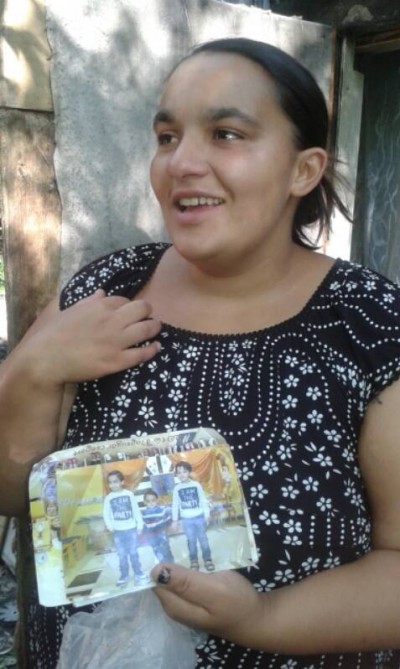Residents of Székesfehérvár—largely Hungarian citizens of Roma ethnicity—have turned to our organization for assistance in confronting their housing crisis. In three meetings in July, a total of thirty families asked for the Roma Parliament to represent them and advocate for their legal rights and interests. According to the families, there are at least 60-80 households, or about 500 individuals, currently at risk of eviction and becoming homeless. Among those who asked for our assistance, about a third are not Roma. Our assessment is that among those are evicted, about half are Roma and half non-Roma Hungarians. Most have had no warning and no debts, but do earn the minimum wage or below the minimum wage—mostly from public works labor.
One local resident, Elvira Lakatos, put it this way: “We take bread away from our children’s months so there would be a roof above our heads.”
The municipality office is not extending leases that are up for renewal, or is presenting reasons to annual the leases (families hosted relatives for 3-5 days and did not report the visit; families do not use the property for their own purposes and there were phone calls made on the matter— nothing helps shift this stance, even when, for example, fourteen neighbors sign paperwork declaring the contrary to be true.). No official justification for the evictions has been provided. The verbal explanation given is “the renter has been living here for a long time, could have saved up money”, while Roma have often said that officials have told them “the borders are open.”
The locals are guessing that the apartments are needed for 30 NATO soldiers, the Videoton business, skilled laborers from abroad, or perhaps Hungarians impacted by the foreign-currency dominated mortgages crisis.
The apartments in question were largely built, with EU funding, for the purpose of housing the Roma community and disabled individuals. We have met one individual confined to a wheelchair who will have to leave his home within three months.
Thus far we have met with ten families who have either become homeless or are staying with relatives as a result of the new evictions. One retired, ill Roma individual left so as not to lose custody of grandchildren. The Lakatos and Szajko families had their children taken away (3 each), and the children are now staying with foster parents while their parents live in the forest. One individual now residing in the forest—Noemi—goes from the forest to her job as a cleaner at a supermarket.

Noémi’s three boys have been taken away from her and put into foster care. She lives in a shack in the forest, from where she goes to work every morning to a local Tesco. Photo: Aladár Horváth
The Roma Parliament on July 27 presented the concerns of the Roma and non-Roma families, and presented the individuals now living in the Palotavárosi forest, separated from their children.
In the name of the 30 families who turned to us for representation, we are demanding:
- Immediate halt to evictions, and a pledge to impacted families that the city will not follow in the footsteps of Miskolc’s anti-Roma policies.
- In the case of those currently living in the forest, we request assistance, housing support, and custody of their children.
- A review of the municipality’s policies and decision-making, especially when in comes to families with children, ill individuals, pensioners, and grandparents.
- A municipal decision annulling eviction decisions made over the past months.
- Assessments of the socioeconomic condition and income levels of families impacted, to be used when examining future changes in residence in order to avoid threats to well-being of families.
We call upon the leadership of the city and on political parties not to repeat the mistakes of the 1997-2000 “székesfehérvári ghetto affair”’s professional and political errors. We ask that local officials and politicians use current evidence, and not outdated, ten-year old photos. We also ask that they respect their citizens and voters’ basic rights, and show the city’s residents—Roma and non-Roma—that they have representation.
These are the goals of the Roma Parliament.
Aladár Horváth, President of the Roma Parliament
Translated from the Hungarian by L. B.